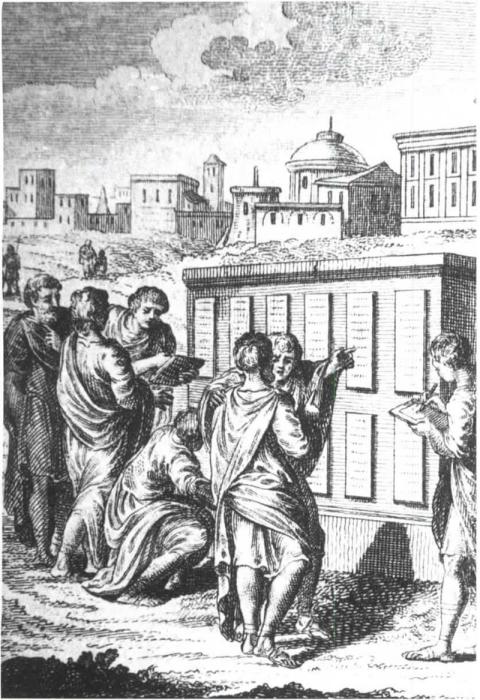T. H. M. Gellar-Goad
September 2, 2021
Omnia mutantur, nos et mutamur in illis. The Society for Classical Studies’ Communications Committee has approved a few changes to the SCS Blog guidelines, and we thought we’d get the word out about a couple consequential ones.
First, anonymous and pseudonymous posts are no longer strictly out of the question. The new bottom line:
The SCS Blog does not, as a rule, post anonymous content, meaning content written and submitted by one or more authors whose identities are unknown even to the editors of the blog. However, we are aware that there are situations where someone(s) might have valuable insight to share but not be able to do so out of concerns for retaliation or professional repercussions.
We expect anonymous/pseudonymous posts will be rare; in cases where authors seek anonymity/pseudonymity, we have adopted a consent-based confidentiality policy detailed in full on the guidelines page.
Second, we have modified the SCS position on political content. Previously, our stance was that “[w]hile posts on the historical context of a current political subject are encouraged, we will normally not consider posts which take a stance on the issue itself.” This has become untenable in the wake of the tumult of the last several years. Moreover, it denies the fact that our discipline is inherently political and has been since its foundation. An “apolitical” stance is itself political.
Therefore, we now encourage posts that put their finger on the pulse of the field and its place in the world:
The SCS is a nonprofit organization that does not expend a significant amount of effort on political lobbying and does not endorse candidates or political parties. Posts on the SCS Blog must not endorse candidates and generally should not include direct calls for lobbying action. Posts on the intersections of the ancient world, modern scholarly inquiry, and current political subjects are welcome and encouraged.
If you’ve got something to say, we’d like to hear it! Send your ideas to the SCS Blog’s Editor-in-Chief, T. H. M. Gellar-Goad.
Header image: Roman civilians examining the Twelve Tables after they were first implemented. Image courtesy of Wikimedia Commons.
Authors


